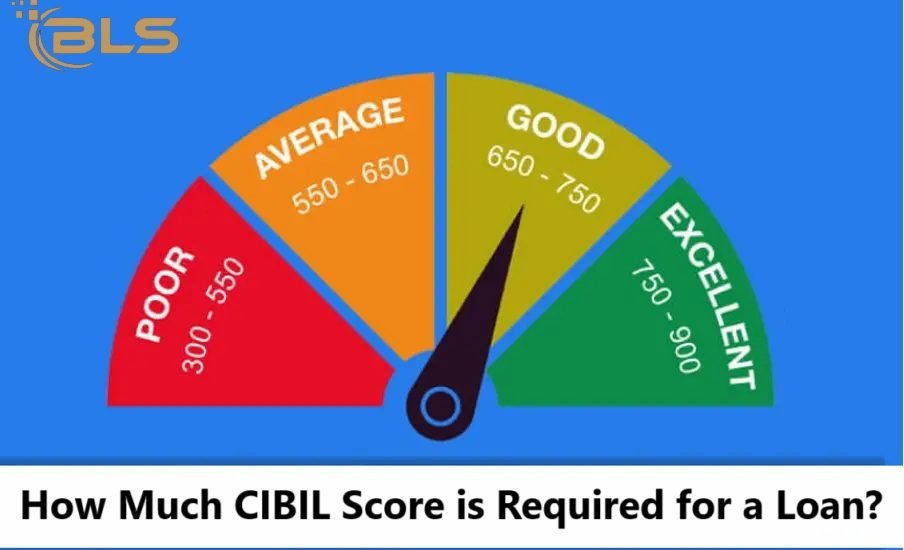How Much CIBIL Score is Required for a Loan?
- January 8, 2025
- Posted by: BLS
- Category: Finance & accounting

When applying for a loan, your CIBIL score plays a crucial role in determining your eligibility and the terms you receive. But how much CIBIL score is enough? Let’s delve into the details to understand the ideal CIBIL score for different types of loans and why it matters.
What is a CIBIL Score?
The CIBIL score is a three-digit number ranging from 300 to 900, reflecting your creditworthiness. It is based on your credit history, repayment behavior, and financial discipline. Lenders use this score to assess your ability to repay a loan.
Minimum CIBIL Score Required for Loans
Personal Loans
- Ideal Score: 750 or above
- Why it’s Important: Personal loans are unsecured, meaning they don’t require collateral. A high CIBIL score assures lenders that you’re a low-risk borrower.
Home Loans
- Ideal Score: 700 or above
- Why it’s Important: While some lenders may approve a home loan with a score below 700, a higher score can get you better interest rates and faster approval.
Car Loans
- Ideal Score: 700 or above
- Why it’s Important: Car loans are typically secured, but a good CIBIL score ensures you get competitive rates and better repayment terms.
Business Loans
- Ideal Score: 750 or above
- Why it’s Important: Business loans often involve larger amounts, making it essential to have a strong credit profile to instill confidence in lenders.
Education Loans
- Ideal Score: 650 or above
- Why it’s Important: While your score matters, education loans also consider the co-applicant’s (usually a parent’s) credit score and financial standing.
Factors Affecting Your CIBIL Score
- Repayment History: Timely payments boost your score.
- Credit Utilization Ratio: Using less than 30% of your credit limit is ideal.
- Length of Credit History: A longer credit history works in your favor.
- Credit Mix: A healthy balance of secured and unsecured loans is beneficial.
- Recent Credit Inquiries: Too many inquiries in a short time can lower your score.
Why a Good CIBIL Score Matters
- Faster Approvals: High scores reduce the risk for lenders, leading to quicker approvals.
- Better Interest Rates: A good score allows you to negotiate lower interest rates.
- Higher Loan Amounts: Lenders are more willing to offer larger loans to borrowers with strong credit profiles.
- Flexibility in Terms: Borrowers with high scores often get better repayment terms.
Conclusion
While the exact CIBIL score requirement varies by lender and loan type, maintaining a score of 750 or above ensures better chances of approval and favorable terms. Regular monitoring of your credit score and adopting healthy financial habits can help you achieve your financial goals more effectively.
If you’re planning to apply for a loan, start by checking your CIBIL score and understanding the lender’s requirements. A little preparation can go a long way in securing the best deal!
